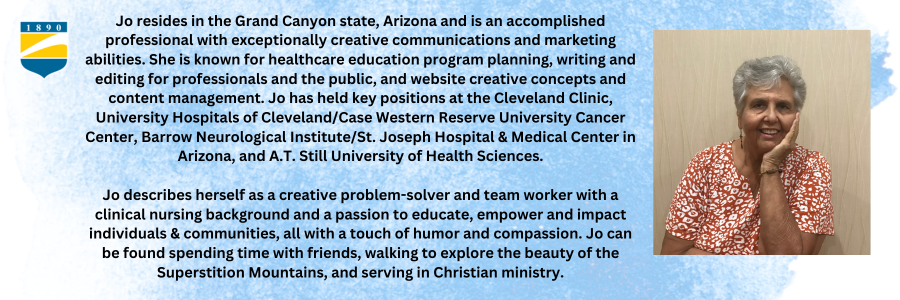12 Ways to Reduce Stress in the Healthcare Field
Stress Among Healthcare Workers
Stress—we all experience it and are constantly seeking ways to reduce stress in our lives.
For individuals entering or already working in the healthcare field, stress can be a large part of their occupation because of demanding job requirements, trying to keep a work-life balance, and other factors.
A 2023 Global Qualitative Nursing Research study reported, “Healthcare workers are experiencing high stress and burnout, at rates up to 70%, hindering patient care.” Following the COVID-19 pandemic, healthcare workers reported even higher levels of stress and burnout, up to 93%. The American Hospital Association has proactively addressed the pressing need to reduce stress among healthcare professionals and enhance their overall well-being and workplace safety in their publication: Strengthening the Healthcare Workforce: Strategies for Now, Near, and Far.
What is Stress?
According to the Cleveland Clinic, “Stress is the natural reaction your body has when changes or challenges occur. It can result in many different physical, emotional, and behavioral responses.” Stress can be positive, called eustress, or negative, called distress.
For example, getting ready to go on vacation might be stressful (eustress), but, ultimately, it will lead to an enjoyable and positive experience. On the other hand, an individual might experience distress if unprepared to take an exam or give a presentation.
In general, eustress is encouraging and motivating, while distress can impact an individual negatively. However, PsychCentral points out that it is important to remember that stress “can be seen as a spectrum response based on how it affects you.” What causes one person distress may be a positive source of stress for another, and this can vary at different times in a person’s life.
Ways to Reduce Stress
Whether you are a student training to enter a healthcare career or established in the healthcare field, there are physical and emotional ways to reduce stress.
To make your work and personal life less stressful, it’s important to develop certain strategies to reduce stress. You first need to know the signs of stress, like trouble sleeping, irritability, lack of motivation, difficulty concentrating, and feeling sad. For students in healthcare career training, some additional signs of stress can be a lack of interaction with other students, lower test grades, and difficulty managing assignments.
Tips to Reduce Stress at Work
Understaffing, heavy workloads, changing work shifts, and challenging patients contribute to stress on the job. Here are some strategies to reduce workplace stress:
- Communicate truthfully about your stress level to supervisors and coworkers. Identifying the factors causing your stress and sharing honestly with others instead of keeping it to yourself can help to reduce your stress level.
- Take breaks in your workday. You may feel as a healthcare worker that you cannot take a break because of the multiple tasks throughout your workday. However, this can increase your stress level. Instead, force yourself to take a break, even if it’s only for a few minutes. It will help you to reduce your stress level and come back refreshed and better prepared to complete your tasks.
- Try sharing responsibilities with your coworkers, and don’t be afraid to ask for help with a challenging patient.
- Know the resources available to you to reduce stress, and consider speaking with a mental health professional. Most healthcare organizations offer mental health resources to employees. A 2021 study that reported on an occupational stress reduction program for healthcare workers at a hospital concluded, “The psychological support programme showed a consistent effectiveness on mental health and quality of life as well as on productivity related to a decreased absenteeism in healthcare settings.”
Suggestions to Reduce Stress in Personal Life
- Make a plan to take care of yourself including eating healthy foods, getting enough rest with a routine bedtime if possible, and exercise.
- Have a time to disconnect from your phone and other technology. Instead, go for a walk outside, or engage in an activity that brings you happiness and lets your creativity flow.
- Practice meditation.
- Schedule times to spend with family and socialize with friends.
- Keep on top of your health appointments and recommended screenings.
- Set clear work-life boundaries, and maintain balance.
- Become involved with community or faith-based groups for support.
- If you are a student in training for a healthcare career, be sure to take a break away from your studies. Your commitment to establishing balance in your career and student life can develop resilience, make your time at work and school more enjoyable, and help you stay motivated.
Unplug and Recharge
Understanding how to reduce stress as a future or current healthcare professional is a priority and will help you to manage work-related or student-in-training stress. Making a livable work-life balance plan and following strategies to cope with and reduce stress can put you on a path to avoid career burnout later.
Your commitment to establishing balance in your career and student life can develop a resilient you for the long term and make your time at work in the healthcare field and school more enjoyable.
If you are interested in pursuing a career in the healthcare field or are changing your career direction, Blackstone Career Institute has a number of online training programs available.
Written by Jo Gambosi


Disclaimer: Blackstone Career Institute, an accredited school, cannot guarantee employment, job promotion prospects, or income increases.













